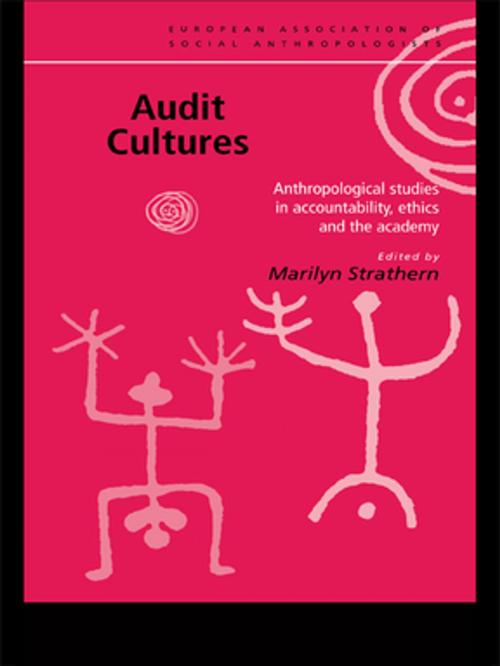Audit Cultures
Anthropological Studies in Accountability, Ethics and the Academy
Nonfiction, Social & Cultural Studies, Social Science, Anthropology| Author: | Marilyn Strathern | ISBN: | 9781134569694 |
| Publisher: | Taylor and Francis | Publication: | December 8, 2003 |
| Imprint: | Routledge | Language: | English |
| Author: | Marilyn Strathern |
| ISBN: | 9781134569694 |
| Publisher: | Taylor and Francis |
| Publication: | December 8, 2003 |
| Imprint: | Routledge |
| Language: | English |
Do audit cultures deliver greater responsibility, or do they stifle creative thought?
We are all increasingly subjected to auditing, and alongside that, subject to accountability for our behaviour and actions. Audit cultures pervade in the workplace, our governmental and public institutions as well as academia. However, audit practices themselves have consequences, beneficial and detrimental, that often go unexamined.
This book examines how pervasive practices of accountability are, the political and cultural conditions under which accountability flourishes and the consequences of their application. Twelve social anthropologists look at this influential and controversial phenomenon, and map out the effects around Europe and the Commonwealth, as well as in contexts such as the European Commission, the International Monetary Fund and Academic institutions. The result provides an excellent insight into auditing and its dependence on precepts of economic efficiency and ethical practice. This point of convergence between these moral and financial priorities provides an excellent opening for debate on the culture of management and accountability.
Do audit cultures deliver greater responsibility, or do they stifle creative thought?
We are all increasingly subjected to auditing, and alongside that, subject to accountability for our behaviour and actions. Audit cultures pervade in the workplace, our governmental and public institutions as well as academia. However, audit practices themselves have consequences, beneficial and detrimental, that often go unexamined.
This book examines how pervasive practices of accountability are, the political and cultural conditions under which accountability flourishes and the consequences of their application. Twelve social anthropologists look at this influential and controversial phenomenon, and map out the effects around Europe and the Commonwealth, as well as in contexts such as the European Commission, the International Monetary Fund and Academic institutions. The result provides an excellent insight into auditing and its dependence on precepts of economic efficiency and ethical practice. This point of convergence between these moral and financial priorities provides an excellent opening for debate on the culture of management and accountability.















